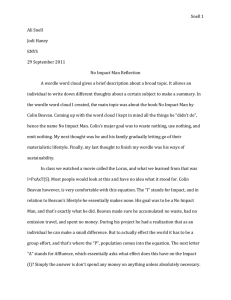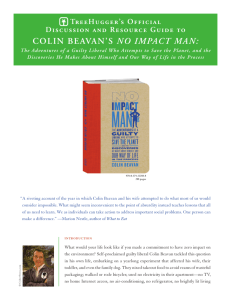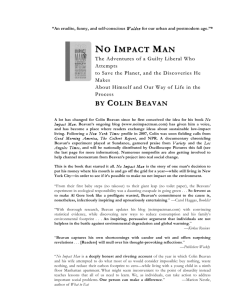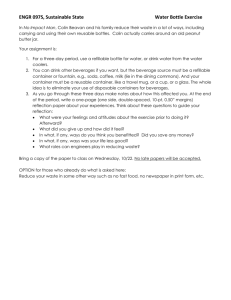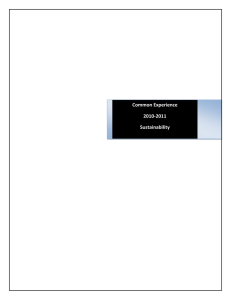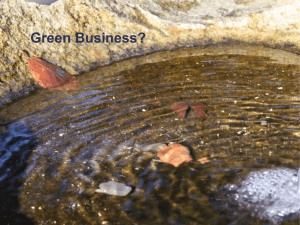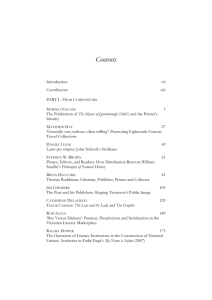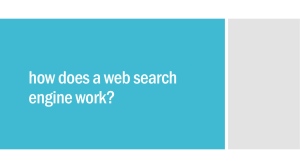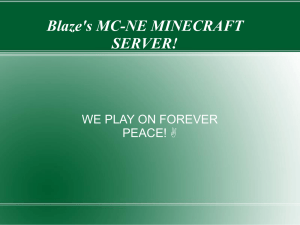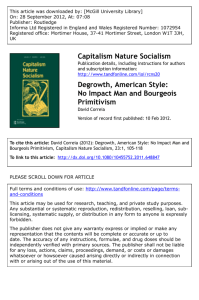No Impact Man Reader's Guide - University of South Carolina
advertisement
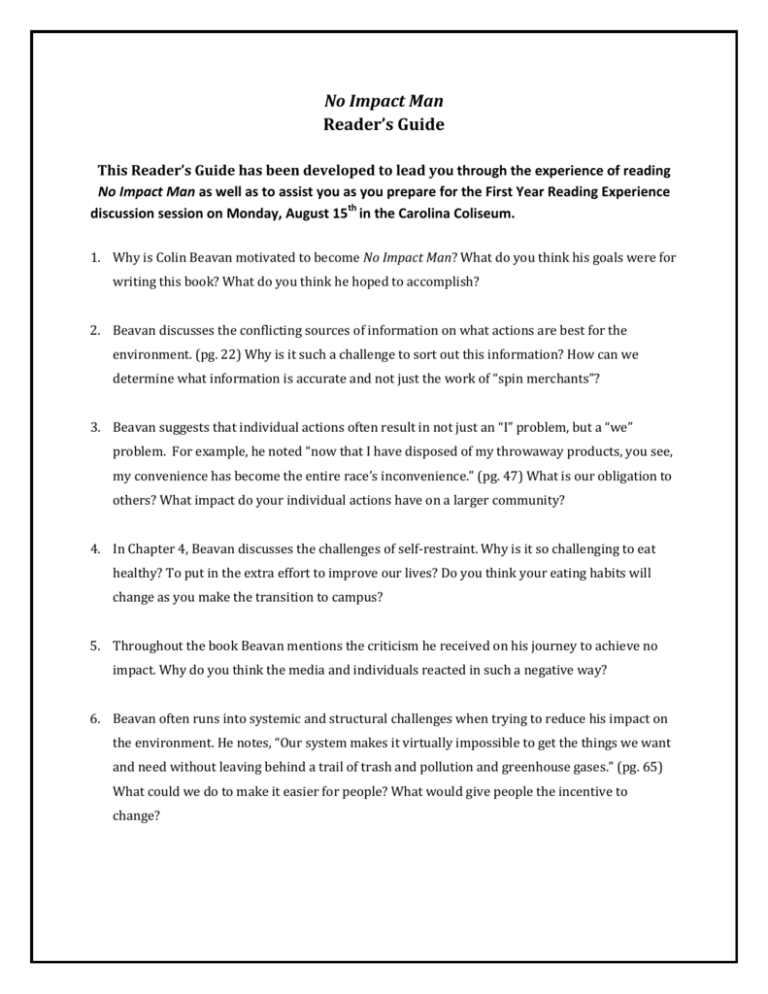
No Impact Man Reader’s Guide This Reader’s Guide has been developed to lead you through the experience of reading No Impact Man as well as to assist you as you prepare for the First Year Reading Experience discussion session on Monday, August 15th in the Carolina Coliseum. 1. Why is Colin Beavan motivated to become No Impact Man? What do you think his goals were for writing this book? What do you think he hoped to accomplish? 2. Beavan discusses the conflicting sources of information on what actions are best for the environment. (pg. 22) Why is it such a challenge to sort out this information? How can we determine what information is accurate and not just the work of “spin merchants”? 3. Beavan suggests that individual actions often result in not just an “I” problem, but a “we” problem. For example, he noted “now that I have disposed of my throwaway products, you see, my convenience has become the entire race’s inconvenience.” (pg. 47) What is our obligation to others? What impact do your individual actions have on a larger community? 4. In Chapter 4, Beavan discusses the challenges of self-restraint. Why is it so challenging to eat healthy? To put in the extra effort to improve our lives? Do you think your eating habits will change as you make the transition to campus? 5. Throughout the book Beavan mentions the criticism he received on his journey to achieve no impact. Why do you think the media and individuals reacted in such a negative way? 6. Beavan often runs into systemic and structural challenges when trying to reduce his impact on the environment. He notes, “Our system makes it virtually impossible to get the things we want and need without leaving behind a trail of trash and pollution and greenhouse gases.” (pg. 65) What could we do to make it easier for people? What would give people the incentive to change? 7. Beavan ponders the dilemma of “stuff”. He asserts that the acquisition of “stuff” to bring happiness into our lives is a vicious cycle: “We work our butts off so we can get the stuff, but the making of the stuff destroys the planet, which makes us more depressed, so we think we need more stuff to cheer us up, so we work even harder.” (pg. 142) What makes you happy? Is your happiness dependent on “stuff”? Could you be just as happy with less “stuff”? 8. Beavan feels incredibly overwhelmed with his experiment and shares some of the aspects that were most difficult for his family. (pgs. 190-191) Why does he feel the need to share this with the reader? What implications does it have for a larger message? 9. Beavan often consults his personal Rabbi and his teachers at the Kwan Um School of Zen to give “philosophical and religious perspectives on the No Impact project.” (pg. 260) What connection does Beavan see between living sustainably and leading a spiritual and/or moral life? Do you agree or disagree with his perspective? 10. Upon completion of the book, what did you think of Beavan’s quest? Did he accomplish what he hoped to? Do you agree with his method? Will it make a difference? Why or why not? 11. What is your answer to the final line in No Impact Man, “So what are you going to do?” (pg. 224) Monday, August 15, 2011 8:30 am Carolina Coliseum Visit www.sc.edu/fyre for more information about the event and additional resources related to sustainability at the University of South Carolina.
